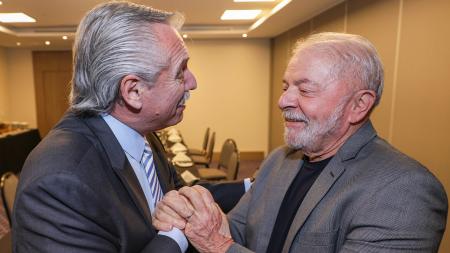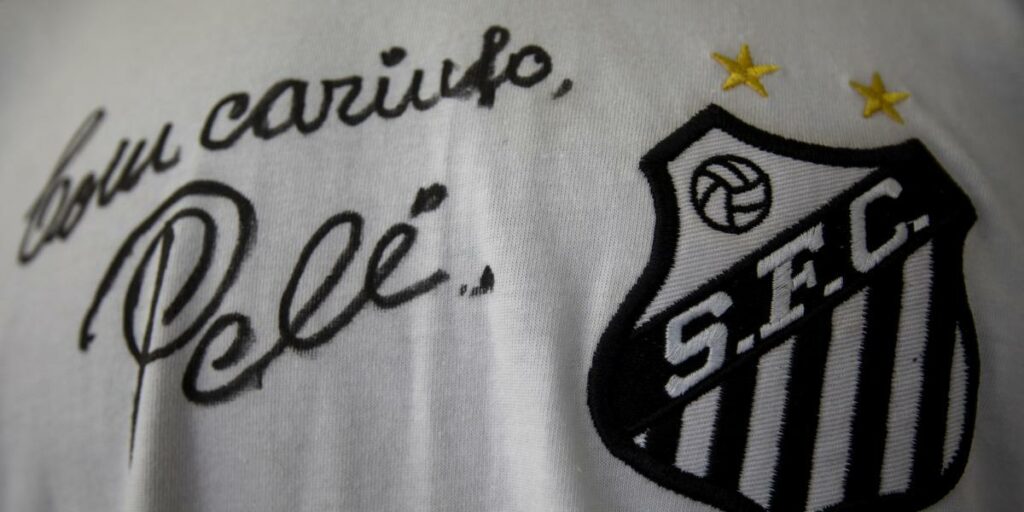The participation of President Alberto Fernández in the inauguration of Luiz Inácio Lula da Silva to the presidency of Brazil, next January 1, constitutes one of the central points of the national government’s international agenda for 2023, not only because of the impact that the arrival for the third time of the leader of the Workers’ Party (PT) at the Planalto Palace will have on the strategic bilateral relationship, but also because of its weight in the future of regional integration.
Although at first there was speculation about the possibility that Fernández would travel to Brasilia on December 31, where he would receive the new year with his family, changes in the schedule of Lula’s inauguration ceremony, modified the plans of the Argentine president, who will finally leave with his entourage for the Brazilian capital on January 1, to return to Buenos Aires the same day.
Although the members of the delegation are still in definition, Official sources told Télam that the President could be accompanied by Foreign Minister Santiago Cafiero, while it is not ruled out that the first lady Fabiola Yáñez will also travel.
The Head of State and the entourage that accompanies him will be received in Brasilia by Ambassador Daniel Scioli, who will make the headquarters of the Argentine Embassy available to the presidential delegation.
As stated, there is the possibility that the former president of Uruguay, José Pepe Mujica, will also travel with Fernándezwho at the invitation of the Argentine president could get on the plane that will take him to Brasilia.
A “highlight” of the 2023 international agenda
Lula’s inauguration is one of the highlights of the Argentine president’s 2023 international agenda, which will continue with the Summit of Heads of State of the Community of Latin American and Caribbean States (Celac), which will take place on January 24 in Buenos Aires, and which will have as its main course the return of Brazil to the bloc (from where it was excluded by decision of the far-right Jair Bolsonaro) with the participation of the leader of the PT, after his return to the presidency of the South American giant.

“Lula’s arrival can help unite the continent again, where globalization is in question and acquires another meaning. Celac lacked the presence of Brazil”declared the Argentine president days ago, in charge of the Pro Tempore Presidency (PPT) of that regional mechanism.
In this regard, last Thursday, in a meeting with journalists who cover the government’s foreign agenda, Cafiero declared that Da Silva’s presence at that summit “is a symbol, and a symbol of what has been achieved in terms of the international agenda “.
Thus, Fernández’s attendance at the inauguration of the president-elect of that country marks for the Casa Rosada an event of great relevance in its foreign policy, not only because of the way in which it will gravitate in the strategic bilateral relationship with the main commercial partner of Argentina, but also because of its relevance for the future of regional integration.
Brazil -as ambassador Daniel Scioli is in charge of reminding him every time he can- is the main partner and first destination for industrial exports of Argentina.
Both nations also have a strategic relationship on nuclear issues, regional security and projection towards the South Atlantic, Antarctica and the Paraná Basin and the Río de la Plata.

Argentina is Brazil’s third largest trading partner (behind China and the United States) and Mercosur’s main partner.
Second visit in less than two months
This will be the second visit of the Argentine president to Brazil in less than two months, after the The trip he made to Sao Paulo on October 31, after confirming the victory, in a ballot, of the leader of the PT over the current president of the neighboring country, the far-right Jair Bolsonaro.
It is known that Fernández and Da Silva maintain a relationship of “friendship” and a strong “political harmony”, deepened by the gesture of the Argentine president visiting Lula in July 2019 during his imprisonment in the Curitiba jail.
In fact, taking up a tradition of Brazilian leaders broken by Bolsonaro, Argentina will be, on January 24, the first trip abroad for Lula, who has already become president of Brazil for the third time, “quite a gesture” by the leader of the PT to the government of the Frente de Todos, they consider in the San Martín Palace.
The importance that Da Silva assigns to the bilateral relationship with Argentina would be reflected in the decision of the president-elect to send a leader with political weight as ambassador to Buenos Aires, contrary to the Itamaraty tradition of appointing representatives with a diplomatic background.
In diplomatic circles, the possibility resonates that this position falls on former president Dilma Rousseff or some other leader with a strong political profile.
“Dilma ambassador, hopefully, we will have to see. I don’t know if it will be Dilma, but surely they will send a leader with a political profile,” they speculate in the San Martín Palace.
According to sources from the Argentine Foreign Ministry, it is expected that, within the framework of the conclave of Celac presidents, the Brazilian president will be received by his Argentine counterpart, Alberto Fernández, at the Casa Rosada, to hold a bilateral meeting that will include the signing economic integration agreements, particularly in energy matters.
A twist for the region
The arrival at the Planalto Palace (headquarters of the Brazilian Federal Government) of Lula, who for Fernández will be a key leader for “reunite the region“It will also mean a shift in the geopolitical position of Latin America.
In the meeting that Fernández and Lula held at the Intercontinental Hotel in São Paulo, hours after the electoral victory of the former metallurgical trade unionist, both leaders discussed “how to approach the relationship with the United States at this time,” according to what the president declared on that occasion. Argentine in an interview with C5N from Brazil.
Secondly, Brazil is a member of the Brics, the block of strong geopolitical and economic weight that it shares with Russia, India, China and South Africa, to which Argentina seeks to join.
In this sense, for Fernández “with Lula we will have an activist for Argentina to enter the Brics”, the coalition of nations that represents a third of the global economy, almost half of the planet’s population, and contributes 50% to the growth of the gross product of the world.
The possibility that (as happened in the times of Néstor and Cristina Kirchner) Brazil and Argentina return to coordinate common positions, both in international forums and at the regional level, would allow progress in integrationist policies, helped by the presence of Andrés Manuel López Obrador (Mexico ), Gustavo Petro (Colombia) and other center-left leaders in Latin American and Caribbean countries.
















